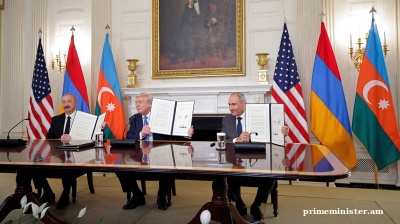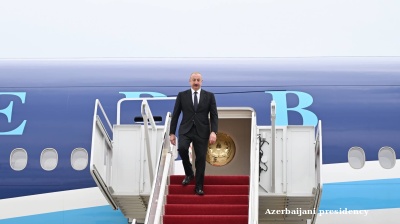Hungarian oil and gas company MOL and Turkish peer TPAO are partnering on hydrocarbon exploration and production in the west of Hungary, Minister of Foreign Affairs and Trade Peter Szijjarto said after a meeting with Turkey's Minister of Energy and Natural Resources Alparslan Bayraktar in Budapest.
In a statement issued by his ministry, Szijjarto said the partners had established a joint venture for the purpose and signed two concession contracts in southern Hungary (Tamasi and Buzsak). TPAO will invest around HUF6bn (€15mn) there. MOL and TPAO have worked together for a decade already, operating a gas field in Russia and establishing long-term cooperation in Azerbaijan.
Szijjarto acknowledged Turkey's role in ensuring Hungary's secure energy supply and said gas volume delivered through the TurkStream pipeline was close to 2.5bcm in 2025, roughly 30% of the country's gas needs. He added that the pipeline had put Hungary's gas supply on sure footing, allowing the continuation of the regulated utilities price scheme for households.
Turkish Energy Minister Alparslan Bayraktar called the agreement a "milestone" in a long-standing energy partnership between the two countries.
The collaboration is expected to extend beyond Hungary to third countries, with potential projects in Africa, Asia and the Middle East. "Both Turkey and Hungary face similar challenges as import-dependent countries," Bayraktar said, pointing to recent European power outages as a reminder of the urgency of energy security
Turkey's first gas export to a non-neighbouring country was based on an agreement signed in 2023 and finalised in February 2024 between Turkish state oil and gas company BOTAS and Hungarian utility giant MVM, he recalled.
In a separate statement, MOL said that the sides had signed an MoU in October 2024 on cooperating in upstream activities in the Caspian Sea region, Turkey, North Africa, the Middle East and Central and Eastern Europe. The concession contracts were signed by MOL chairman-CEO Zsolt Hernadi and his counterpart at TPAO, Ahmet Turkoglu.
MOL remains the dominant force in the country’s hydrocarbon sector, accounting for 47% of domestic crude oil production and nearly 90% of natural gas output in 2024. Operating some 1,300 production wells across Hungary, the company delivered almost 600,000 tonnes of crude and 1.5bn cubic metres of gas last year.
Hungary continues to serve as MOL’s most important upstream base, representing roughly 39% of the group’s total production. Recent exploration successes has pushed its local production to a five-year high. MOL has drilled 24 successful shallow gas wells in recent years and expanded its footprint in eastern Hungary through acquisitions covering a 1,000-sq km area with 29 producing wells and further exploration potential.
Internationally, the group maintains exploration and production assets in nine countries and is active in eight. Average daily production reached 93,800 barrels of oil equivalent (boe) in 2024. As part of its push to deepen its international footprint, MOL has signed cooperation agreements with national oil companies in Kazakhstan (KazMunayGas), Azerbaijan (SOCAR) and Turkey (TPAO).
In related news, Turkey’s Calik Holding has recently signed the contract with state-owned energy group MVM on the construction of a 1,000-MW combined cycle gas-fired power plant (CCGT) in northeastern Hungary from a HUF500bn investment partnering with Italy’s Ansaldo Energia in the consortium. The plant will generate 7,500 GWh of energy a year when it is completed in three to three-and-a-half years. Energy Minister Csaba Lantos hailed the project as a step toward reducing Hungary’s energy dependence, while providing flexible backup capacity
Prime Minister Viktor Orban announced two years ago that Hungary would build three CCGTs with a total 1,650-MW capacity to meet the rising energy demands of new industrial sites and to provide reliable backup energy sources.
Two CCGT power plants, with a capacity of up to 500 MW apiece, will be constructed at the MVM Tisza Power Plant in Tiszaujvaros in northeastern Hungary.
The third power plant will be built by a consortium led by Status KPRIA, a company owned by Lorinc Meszaros for a €14.7mn. The other members include Hungarian-owned WHB and Egyptian-based Elsewedy Electric for Power System. The new facility will be located adjacent to Matrai Eromu, Hungary's largest lignite-fuelled power plant and second-largest electricity generator, which is set to be decommissioned by 2028.
News

Armenia, Azerbaijan sign US-brokered peace deal, agree to open ‘Trump Route’ transit corridor
Agreement commits the two countries to formally end hostilities and reopen transport links severed during decades of conflict over the disputed Nagorno-Karabakh region.

Mixed messages on Russian oil supply to India
India’s Rosneft-backed Nayara Energy is struggling to secure ships to transport fuel after being placed under European Union sanctions.

Trump and Israel's Netanyahu engage in heated call over Gaza humanitarian issue
US President Donald Trump engaged in a heated telephone call with Israeli Prime Minister Benjamin Netanyahu over Gaza’s humanitarian situation on July 28.

Hezbollah official killed in Israeli strike on vehicle in southern Lebanon
An Israeli drone strike killed one person targeting a vehicle on the Ansariyeh road near the Zahrani-Tyre highway in southern Lebanon




